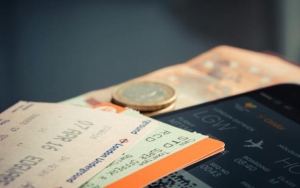In Dubai’s rental market, tenancy agreements are more than just contracts between landlords and tenants—they are legally recognised arrangements recorded in the city’s official property database. To maintain this legal status, tenants must renew Ejari when their lease term ends. The process ensures that rental agreements remain valid, protects the rights of both parties, and keeps government records up to date.
As one of the most regulated tenancy systems in the region, Ejari renewal is straightforward if you understand the requirements, follow the correct timeline, and avoid common pitfalls.
Understanding Ejari and Its Legal Role
Ejari, meaning “my rent” in Arabic, is the tenancy registration system overseen by the Real Estate Regulatory Agency (RERA) under the Dubai Land Department (DLD). It standardises rental contracts and ensures all details—such as rent amount, property type, and tenant and landlord identities—are recorded in the city’s official database.
This system, introduced by the government of Dubai, was designed to increase transparency, prevent disputes, and create a reliable record of rental agreements. Without a valid Ejari, tenants may be unable to renew residence visas, connect utilities, or prove their legal right to occupy a property.
Why Renewal Is Important
Most residential and commercial tenancy agreements in Dubai run for 12 months. Once the contract expires, both the agreement and its Ejari registration must be updated for the new rental period. This renewal ensures that the lease remains enforceable, utilities continue without interruption, and both parties are protected under Dubai’s tenancy laws.
Failure to renew can lead to legal complications. For tenants, this may mean difficulties with immigration processes or service connections. For landlords, it can reduce their ability to take legal action for non-payment or contract breaches.
Requirements to Renew Ejari
Before starting the renewal process, it is important to gather the necessary documents. For individual tenants, these typically include:
- A valid tenancy contract signed by both parties for the new term
- Emirates ID (for residents) or passport copy (for non-residents)
- Landlord’s title deed or a recent property ownership certificate from the DLD
- Proof of rent payment, such as a cleared cheque or bank transfer confirmation
- DEWA account number or latest utility bill
For companies leasing property, additional documents may be required, such as:
- Valid trade licence
- Memorandum of association or equivalent corporate documents
- Passport copies of authorised signatories
These requirements help ensure that the renewed Ejari reflects accurate and up-to-date details.
How to Renew Ejari: Step-by-Step
The renewal process can be completed either in person at a Real Estate Services Trustee Centre or online through the Dubai REST app and Ejari portal.
- Prepare Documentation – Collect all required documents and ensure they match the existing Ejari record.
- Submit the Application – Log in via UAE Pass for online applications or present documents at a trustee centre.
- Pay the Fees – The standard renewal fee is AED 219, including VAT and administrative charges.
- Receive the Updated Certificate – The renewed Ejari is issued electronically and can be downloaded or emailed.
Online renewals typically take less than 15 minutes if all documents are in order, while in-person processing may take slightly longer depending on queues.
Renewal Timeline
The ideal time to renew is within the final two weeks of the existing contract’s validity. While renewals can technically be completed at any time after expiry, delays can cause complications, such as disruptions to DEWA services or issues with visa applications. Some landlords prefer to start the process earlier to ensure there is no gap between contracts.
Fees and Payment Options
The official Ejari renewal fee is set at AED 219. Additional service charges may apply if you use a third-party provider or request expedited processing. Payments can be made via credit card, debit card, or online banking when using digital platforms.
For corporate tenants, fees may also be bundled into wider property management or administrative service charges.
Common Issues During Renewal
While the process is generally smooth, certain challenges can slow down or block renewal:
- Document Mismatches – Differences between the tenancy contract and existing Ejari record, such as incorrect names or property details.
- Unpaid Bills or Service Charges – Outstanding DEWA payments or community fees can delay renewal approval.
- Expired Identification – Using an expired Emirates ID or trade licence during submission.
- Late Renewal – Waiting until after the expiry date may require additional verification steps.
By addressing these issues in advance, tenants and landlords can avoid unnecessary delays.
Legal Consequences of Not Renewing Ejari
An expired Ejari can create immediate legal and practical problems. Tenants may be unable to process visa renewals, register dependents, or access certain government services. Landlords lose the official record that allows them to pursue rent arrears or enforce contract terms in the Rental Dispute Settlement Centre.
In serious cases, failing to renew can be considered a breach of tenancy regulations, potentially leading to eviction notices or contract termination.
How Renewal Connects to Other Services
The Ejari system is integrated with several other government platforms. An updated Ejari ensures uninterrupted utility services, smooth visa processing, and compliance with RERA rental regulations. It also allows landlords to issue rental increase notices or adjust contract terms legally.
For corporate tenants, a renewed Ejari can be essential when applying for additional business permits or expanding operations, as it confirms the legal right to occupy the premises.
The Role of Landlords and Tenants
Both landlords and tenants share responsibility for ensuring timely renewal. In most cases, the party named as the contract holder initiates the process, but cooperation is essential—landlords must provide title deed copies or ownership certificates, and tenants must supply valid identification and proof of payment.
Clear communication between both parties can prevent disputes and ensure a smooth renewal process.
Best Practices for a Smooth Renewal
- Start Early – Begin preparing documents two weeks before the contract expires.
- Check Details Carefully – Ensure names, IDs, and property information match across all records.
- Settle Payments Promptly – Clear any outstanding bills before submitting the application.
- Use Digital Services When Possible – Online platforms are faster and more convenient than in-person visits.
- Keep a Digital Copy – Store the renewed Ejari certificate for easy access in future transactions.
The Digital Future of Ejari Renewals
Dubai continues to expand its smart government initiatives, making tenancy processes more efficient. In the future, Ejari renewals may become partially automated, with AI-driven verification and instant approval based on pre-verified digital records. Integration with blockchain technology could further enhance security, ensuring that tenancy data cannot be altered without authorisation.
Renewing Ejari in Dubai is a straightforward process when you understand the requirements, follow the timeline, and prepare documents correctly. With the city’s increasing shift to digital services, tenants and landlords can complete the process in minutes, ensuring their contracts remain valid and their rights protected.
In a market as fast-moving as Dubai’s, staying ahead of deadlines and avoiding common renewal mistakes is essential for maintaining a secure tenancy. A well-managed renewal not only keeps you compliant with rental laws but also ensures uninterrupted access to essential services and legal protections.






